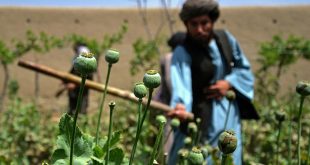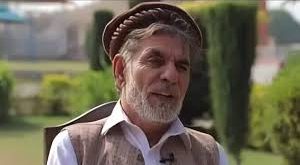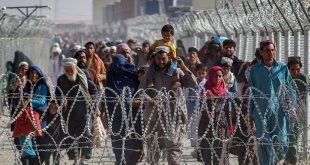By M. Nadeem Alizai
“Politics is the art of making your selfish desires seem like the national interest.”
Thomas Sowell’s quote and observations seem cent percent right when one digs deep into the politics of Imran Khan, chairman of Pakistan Tehreek-e-Insaf (PTI). It isn’t only his arrogance that shocked Pakistan’s media, opposition and constitutional bodies but his extremist narratives that had endangered the fragile regional peace.
What happened on April 3, 2022 in Pakistan has proved that certain elements with extremist mindset if allowed to take power can be deadly not only for their national interests and security but for the region as well. Backed by a dozen of fanatics including Pakistan’s president and ministers, Imran Khan had tore the country’s constitution to strengthen his narrative that terms everyone a traitor and infidel— except those who agree with him.
Indeed, it is a dangerous narrative that has been in progress for years. This time it is standing tall on a foundation. This new practice is a cause of concern for the regional countries because the neighboring countries have just witnessed that how far a power-hungry man can go to save his seat when Khan asked President Arif Alvi to dissolve the National Assembly. The effects of his narrative are strangling the national politics, economy, institutions and bilateral ties with several countries. Pakistan’s stock exchange is dominated by the bear while the Pakistani rupee is going down rapidly against the US dollar. It means the more interest to be paid by the financially weak country on the loans that it had received. Importers and exporters will feel the heat in the coming budget.
Similarly, on national front, Imran-led government made several key institutions controversial to implement his radical approach. These bodies were used for his interests and to target opposition rather than to enhance national security and fight corruption. The National Accountability Bureau (NAB), Federal Investigation Agency (FIA) and Anti-Narcotics Force (ANF) are just a few of the national bodies that were tasked to target PTI’s opponents including journalists. These bodies were also pressurized to wrap up corruption cases such as BRT against PTI leaders including the defense minister Pervez Khattak.
Since PTI has lost popular public support, therefore, Khan wanted to build another narrative that is against the establishment and certain major world players including the US and China. To crush the critics in media, FIA was used against the books. On February 16, following instructions of Federal Minister, Murad Saeed, the FIA raided house of a senior journalist, Mohsin Baig. He was dragged in broad daylight by the agency’s cyber crime wing just for a single remark. He was booked under Terrorism Act. Although, he was using Imran Khan’s ex-wife’s book as a reference but it do not go in favor of Murad Saeed. Therefore, the government treated him like a terrorist. Hamid Mir, Amir Mir, Imran Shafqat and several others were targeted too.
Looking at the whole situation and analyzing the PTI’s extremist ideology, one can say that Imran Khan can lead the region towards a war. A madman with the power to launch nuclear weapons is putting the region at risk. As proven by actions of the PTI chairman, he can go to any extent to garner public support and fuel his extremist narrative. It can lead to small and large scale attacks at the Durand Line and LOC.
To defeat the extremist political ideology, media has to play its role but as unbiased player. Unfortunately, several Pakistani media organizations are supporting Khan’s radical mindset for the sake of few advertisements or an exclusive interview. These outlets must keep the regional peace in view rather than their TRP and advertisements.
Second, the establishment must fix its mistake of bringing Khan into power by calling a spade a spade. They shall not keep hush on important issues such as the “Lettergate”. The security agencies need to tell the public whether the letter sent by Pakistani envoy holds any ground that is used by Khan for political scoring.
Likewise, the opposition parties also need to counter the PTI’s radical approach nationwide through peaceful public campaigns and gathering.
Last but not least, the regional countries including Afghanistan, Iran and China shall come together to discuss ways aimed at thwarting moves that are threatening regional peace and stability.
The writer is an Afghan-Pak security affairs analyst.
 Afghanistan Times
Afghanistan Times



